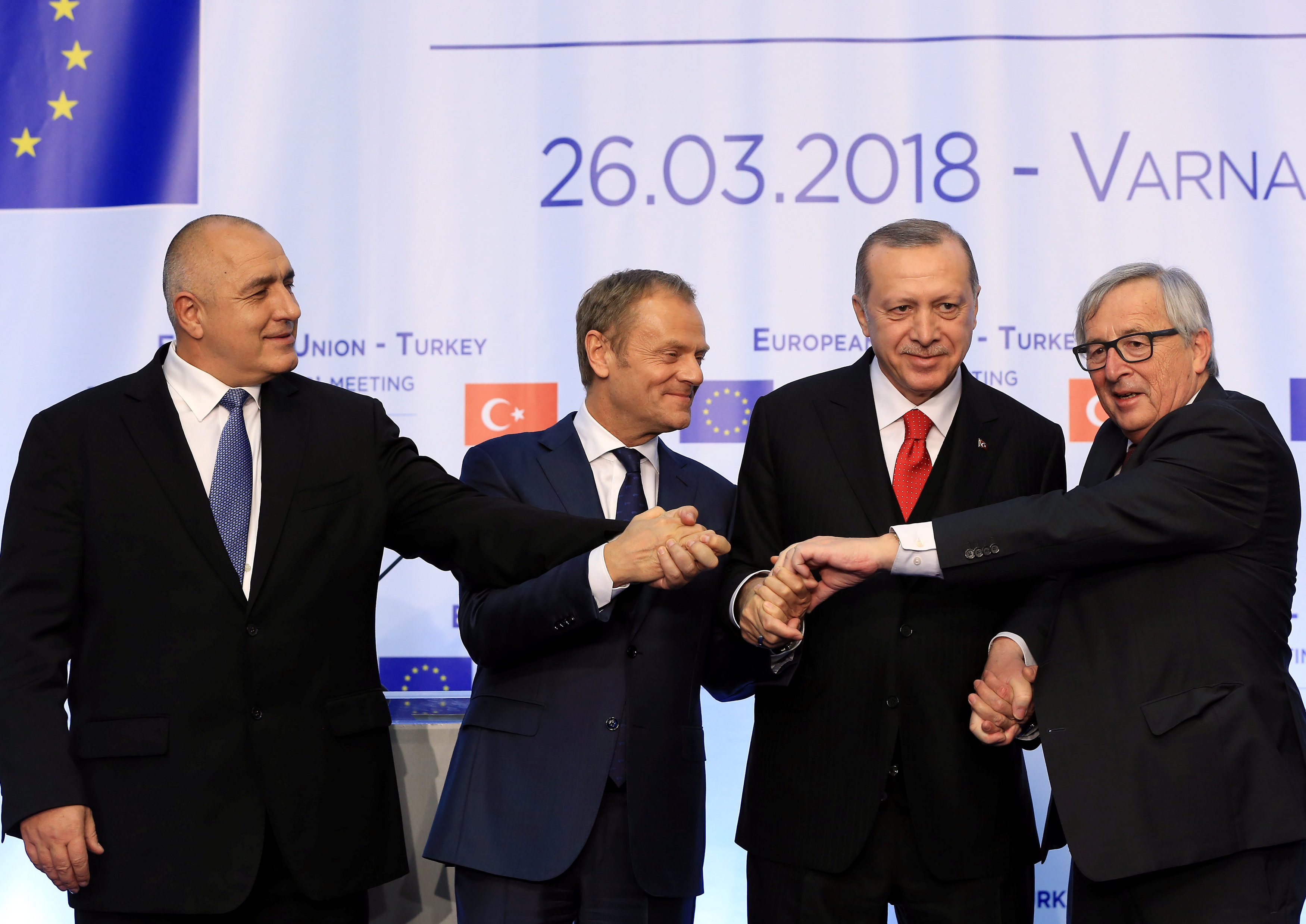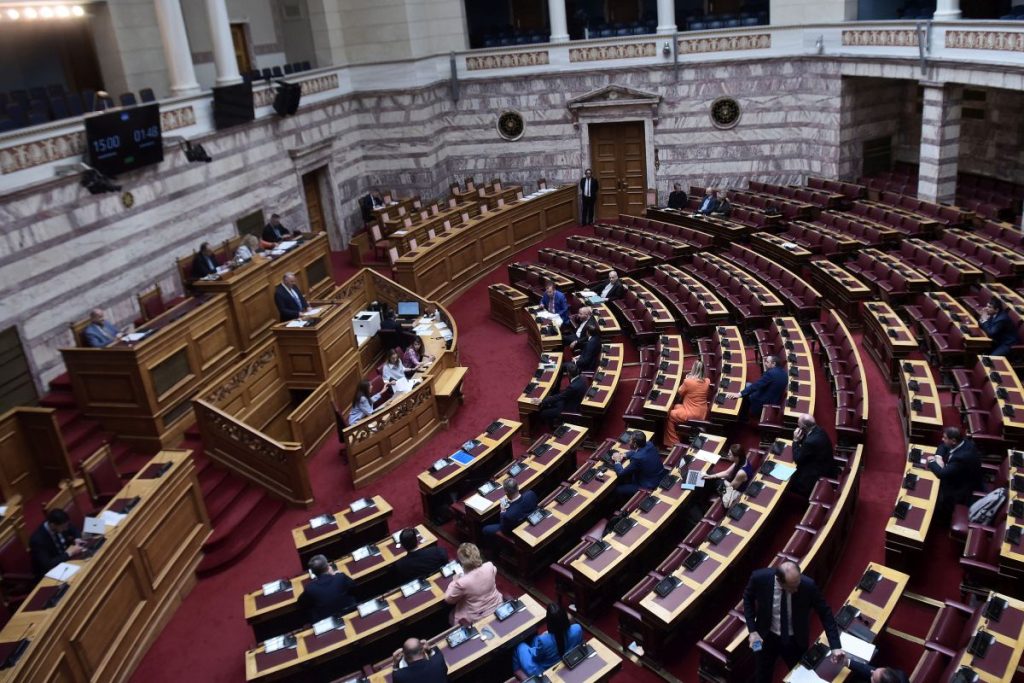European Council President Donald Tusk and European Commission President Jean-Claude Juncker pulled no punches in detailing heightened EU concerns – about wholesale violations of the rule of law in Turkey, Ankara’s illegal activity in the Aegean and in Cyprus’ Exclusive Economic Zone (EEZ), Turkey’s military operations in Afrin, and the imprisonment of two Greek army officers – at an EU-Turkey summit meeting with Turkish President Recep Tayyip Erdogan yesterday in Varna, Bulgaria.
Still, with the overarching issue of the migration crisis posing a direct threat to EU countries, the top EU officials stressed Brussels’ intention of keeping lines of communication open, for an earnest and substantial dialogue.
Turkey still pursuing EU membership.
For his part, Erdogan underlined his intention of pursuing Turkey’s EU accession course, which many observers had surmised was not a priority for Turkey, as its massive violations of the rule of law and its military operations in Syria, which have exacted a heavy toll on the civilian population, have distanced Ankara from EU principles of law.
As regards Ankara’s move to block gas and oil exploration in Cyprus’ Exclusive Economic Zone, Erdogan depicted his actions as support for the rights of the Turkish-Cypriots in exploiting the island’s offshore natural resources.
Tusk, however, underlined EU solidarity with Cyprus in supporting its right to exploit its natural resources, including gas and oil deposits in its EEZ.
On the positive side, Tusk noted that the EU and Turkey seek to expand their cooperation in combating foreign terrorist fighters, and that the EU will continue its support for Turkey in managing the huge population of Syrian refugees there.
Juncker stressed that it is necessary for Turkey to improve its relations with Greece and Cyprus, and he also asked Erdogan to re-examine his stance on releasing the two Greek army officers who were captured at the Greek-Turkish border and have been imprisoned in a top-security Turkish jail for nearly a month.
Juncker also expressed his opposition to simplistic and superficial ideas about cutting off Turkey’s EU accession process. He said that he wants Turkey to be a real strategic partner of the EU, as the two sides share common interests and common challenges.
Greece is Ankara’s most firm supporter in advancing its EU aspirations, as long as Turkey respects international law.
Erdogan’s demands
Erdogan outlined his own demands regarding the steps he believes the EU must take to improve the severely testes EU-Turkey ties, and expressed hopes that a rough patch of poor relations will be transcended.
On the Afrin operation, Erdogan said he expects the EU’s support in dealing with terrorists. German Chancellor Angela Merkel recently denounced the large number of civilian casualties and displaced people caused by Ankara’s operations.
Greek government reaction
“For the first time, the EU sent a clear message to Turkey that there can be no progress in EU-Turkey relations without progress in Ankara’s relations with Greece and Cyprus,” a Greek government source said about the results of the Varna summit.
The Greek side was informed that both Tusk and Juncker emphasised the need for Ankara to release to two Greek army officers, who were essentially patrolling the EU borders, between two Nato countries. The topic was reportedly discussed for 20 minutes, and Erdogan is said to have left open the prospect of resolving the issue, without making and specific commitment.




